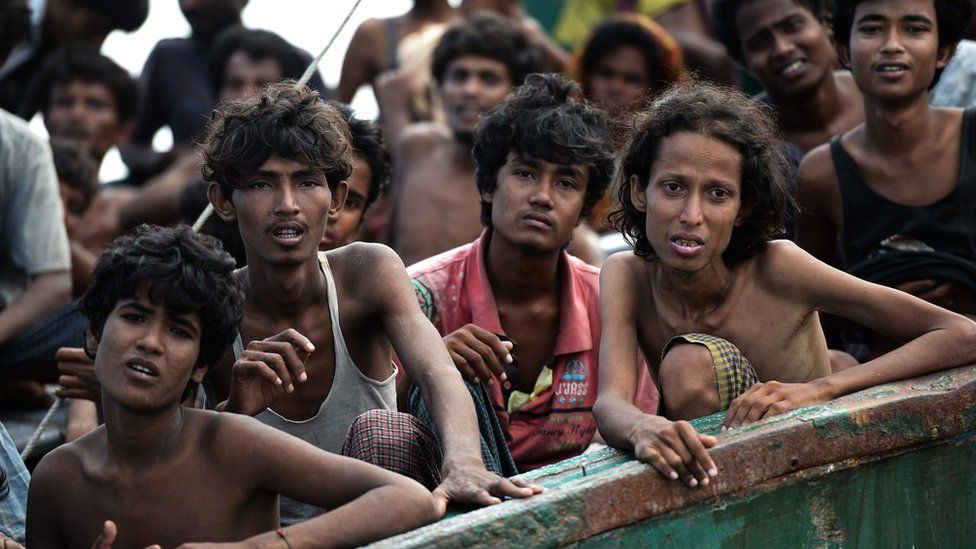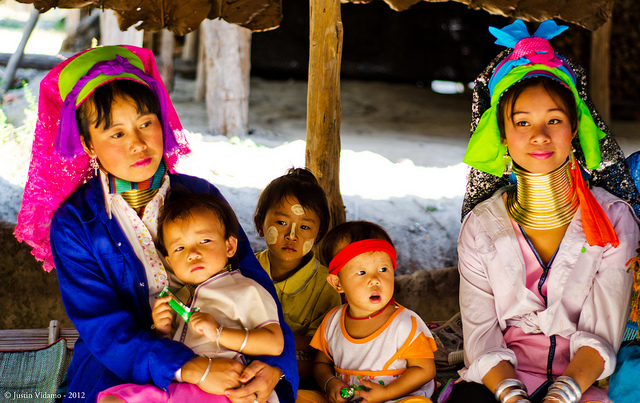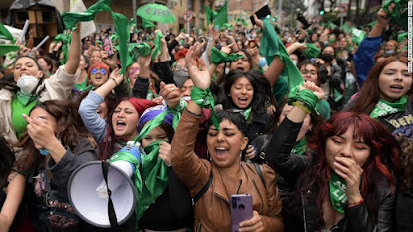In late 2021, the story of Dong, a father in Feng County, China, raising eight children, seven boys and one girl, had spread widely. On the night of January 27, 2022, a Chinese blogger went to Dong's house to film and post a video on Tik-Tok. As seen in the video, his wife is chained by the neck and locked in a dilapidated house next to the family's large house. The local temperature is close to 0 degrees; she has no shoes, is thinly dressed, her hair is messy and her teeth are scattered. After these photos were exposed, they received wide attention from netizens. After the video came to light, the Feng County Propaganda Department issued a statement saying that Yang and Dong were legally married and not involved in human trafficking. The statement also mentioned that Yang had been diagnosed with a mental illness that would cause her to act in a way that would harm her family and was therefore locked up. Two days later, the local government issued another statement saying that Yang was a beggar who was taken in by Dong's father in 1998, but that Dong had not verified her identity when she registered her marriage, so her identity was never clarified. The report also said Yang's mental condition had been deteriorating since 2021, so chains were used to prevent her from harming others. a research report released by the Xuzhou city government on Feb. 7, 2022, said Yang was originally from Fugong County, Yunnan Province, and divorced in 1996. A woman surnamed Sang from the same village brought Yang to Jiangsu for human trafficking treatment. According to Sang, Yang got off the bus and got lost, but Sang neither called the police nor notified Yang's family. The report also noted that of the eight children, Dong and Yang were all consistent with paternity. on February 10, 2022, the official investigation team issued another statement saying that the incident was indeed human trafficking. Dong, Sang and their husbands are the suspects in the case. The three have since been arrested and detained. Yang was sent to a mental hospital for medical treatment.
The ironic aspect of this incident is that initially, Dong's behavior in raising his eight children was promoted by the local government as a positive image. However, the children's mother was never mentioned until a blogger took a picture of the imprisoned woman. It is clear from the incoherent media coverage that the government did not initially take serious and proactive steps to investigate and address the serious moral and human rights issue of human trafficking. It was pressure from netizens and the media from all sides that began to expose Yang's background and experiences. This chained woman's story reflects a larger problem in society - the trafficking of women. Between 1979 and 2015, mainland China implemented a one-child policy. The traditional preference for sons prompted many parents to believe that their only child should be a son. Especially in rural areas, daughters married and joined their husbands' families, while sons stayed with and supported their parents. After several generations, China's decades-long one-child policy has created a huge demographic disaster in terms of gender ratios. According to China's last national census in 2020, there are only 100 women for every 105 men, which means that 34.9 million more men than women nationwide. This disparity exacerbates the practice of single men buying trafficked women from remote rural areas. The root cause behind trafficking in women is gender inequality, as some people continue to treat women as property and objects of trade, as instruments of patrilineal inheritance.
In addition to the issue of trafficking, Dong's mistreatment of Yang also revealed women's low status in the family. Whether Dong shackled Yang or forced her to give birth, these acts of domestic violence are extremely anti-human and against human rights. Marital abuse and violence caused by gender discrimination and a patriarchal society include, but are not limited to, marital rape, violence, etc. In the United States, more than 10 million people suffer domestic abuse, in the worst cases resulting in the death of the victim. Statistics show that 15 percent of all violent crimes are intimate partner violence. Governments and organizations should work to help women who have been abused in their marriages and return their human rights to them.
Works Cited
Behind China's Olympics, the Saga of a Chained Woman ... https://www.usnews.com/news/world/articles/2022-02-19/behind-chinas-olympics-the-saga-of-a-chained-woman-unfolds.
Cao, Aowen, and Emily Feng. “The Mystery of the Chained Woman in China.” NPR, NPR, 17 Feb. 2022, https://www.npr.org/sections/goatsandsoda/2022/02/17/1080115082/the-mystery-of-the-chained-woman-in-china.
“China's Bride Trafficking Problem.” Human Rights Watch, 28 Oct. 2020, https://www.hrw.org/news/2019/10/31/chinas-bride-trafficking-problem?gclid=Cj0KCQiA09eQBhCxARIsAAYRiymoJfae-CH4n4nP94LQ8RDHoa6UjCGTYIx7SAW1mtFL-o97rY_DhqgaAihFEALw_wcB.
“Some Statistics about Domestic Violence- . Project Sanctuary . 2022.” Project Sanctuary - Mendocino County, CA 2022, https://www.projectsanctuary.org/dv/some-statistics-about-domestic-violence/.









